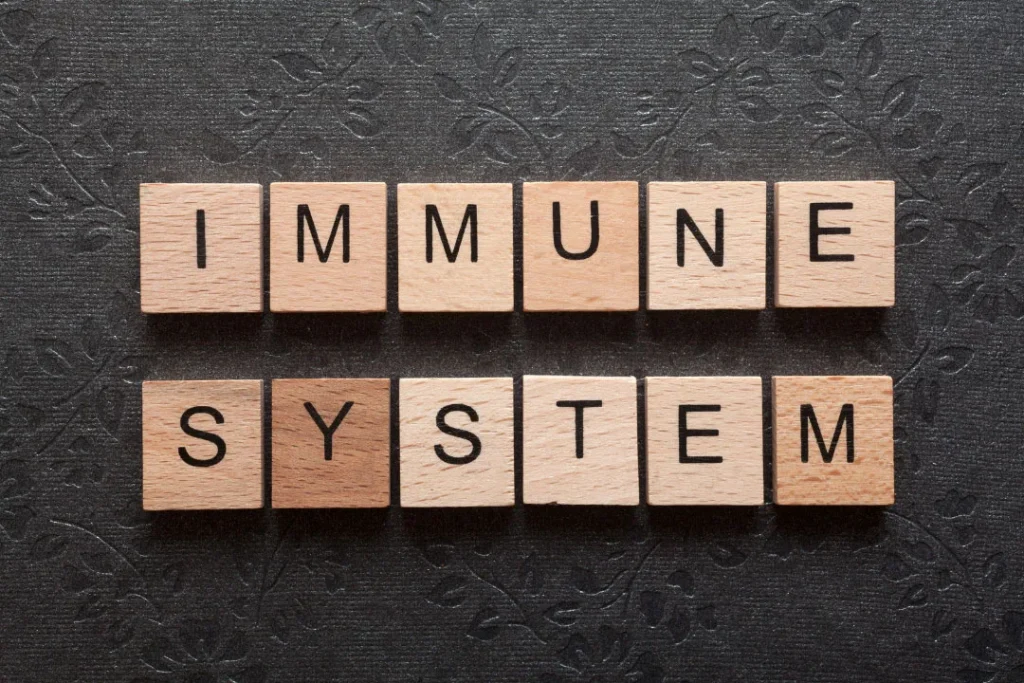Can chamomile help you sleep? Research says yes: chamomile packs active compounds that promote relaxation and sleepiness. Learn about the proven benefits of chamomile for sleep and how you can use this herb to get some much-needed rest.
Sleep—it’s essential, it’s indispensable, and at times, it’s near impossible to achieve. If you’re having trouble sleeping, whether occasionally or on a regular basis, you’re likely familiar with the symptoms: daytime grogginess, difficulty concentrating, irritability, and even more severe issues such as hallucinations and impaired memory.
While many sleep aids line the shelves these days, a natural sleep supplement may be the most beneficial in the long run, as it carries a lower risk of dependency or negative effects on brain chemistry. This is where chamomile comes into play. Chamomile, a plant that’s been in use since ancient Egyptian times, has now garnered extensive support from modern research as an effective sleep aid. Incorporating chamomile into your nightly routine is relatively easy, with a few notable exceptions.
You May Also Like:
DELTA BrainLuxury vs Deep Sleep Patches
Ben Greenfield Sleep Supplements vs. DELTA BrainLuxury
The Truth About Chamomile for Sleep: The Latest Research is an original (News7Health) article.
How using chamomile for sleep works:
The sedative power of apigenin
While ancient Egyptians, Romans, and Greeks turned to chamomile for its medicinal effects, recent research has shed light on how chamomile for sleep works in the body. Chamomile is a mild tranquilizer and is rife with a flavonoid called apigenin, which has a wide range of health benefits, including reduced anxiety and increased relaxation.
Apigenin binds to benzodiazepine receptors in the brain—the same receptors that interact with gamma-aminobutyric acid (GABA) receptors. These interactions may produce calming effects. Additionally, apigenin may counteract the release of stress-inducing corticosteroid hormones. By helping to reduce stress and anxiety, apigenin makes it easier to both fall asleep and stay asleep.

Additional benefits of taking chamomile for sleep
Chamomile is not only a reliable and scientifically proven sleep aid but also offers many other benefits that indirectly contribute to a good night’s sleep. The plant possesses powerful anti-inflammatory and antioxidant properties. In one study, regular consumption of chamomile tea throughout the day led to increased antibacterial activity within a relatively short period of two weeks.
Strong antioxidant responses in the body help bolster the immune system, facilitating deeper and more restful sleep. Small irritations are lessened, creating a conducive environment for bedtime. Imagine trying to sleep with muscle spasms, stomach ulcers, sunburn, rashes, or sores—such conditions can keep you up for hours. While studies in this area are relatively limited at present, chamomile may alleviate the intensity of these afflictions.
The Truth About Chamomile for Sleep: The Latest Research is the (News7Health) report.

Different ways to take chamomile for sleep
After considering the scientific evidence supporting the use of chamomile for sleep, you may be interested in adding it to your routine—but what’s the best way to do so? For starters, choose a chamomile-based supplement that suits you best. These supplements come in the form of essential oils, teas, and capsules. Chamomile tea requires more time to consume, capsules offer a quicker option, and essential oils provide an alternative way to benefit from chamomile. While there is a wide range of chamomile tea brands available, you may have to drink a significant amount of tea to experience maximum benefits; tea lovers may find this appealing, but others might prefer a more potent form of chamomile.
This is where a supplement like myPEAK DeltaSleep comes into play. Billed as a “natural sleep aid and deep sleep cycle optimizer,” myPEAK DeltaSleep combines seven ingredients to support deep sleep, muscle relaxation, and more. Alongside chamomile extract, the formula includes vitamin B3, GABA, valerian root powder, passionflower extract, and low levels of melatonin.
Dr. Barghav Patel, the CEO and co-founder of myPEAK, explains, “DeltaSleep is physician-formulated and science-based with carefully selected ingredients for optimizing your deep sleep cycles, reducing stress and inducing calm, and helping ease you into a rejuvenating night of sleep.” While prescription sleeping medications such as Ambien can result in dependency and disrupt natural rhythms, myPEAK DeltaSleep works in harmony with the body’s natural systems without interfering with hormones or brain chemistry.

When’s the best time to take chamomile for sleep?
Regardless of the type of chamomile you choose, there are some best practices to consider for an optimal sleep routine. For myPEAK DeltaSleep, it is recommended to take one capsule with water precisely 30 minutes before heading to bed. Chamomile tea, on the other hand, needs a bit more time to work its sleep-inducing magic, as teas generally contain a lower concentration of chamomile than supplements. Drinking a cup of chamomile tea approximately 45 minutes before bedtime is often sufficient to induce sleepiness for slumber. Additionally, chamomile extract drops can be used 2-3 times a day to alleviate anxiety and oxidative stress, thereby promoting quality sleep during the night.

Why taking chamomile for sleep could be your best option
Chamomile is a natural sleep aid that does not lead to dependency, making it an appealing choice for many people. However, there are some people who should avoid chamomile, namely those who are allergic to related plants such as ragweed, chrysanthemums, marigolds, or daisies, as well as individuals with asthma.
Even if you don’t have such plant allergies, it’s advisable to consult a physician prior to starting any supplement, especially if you plan to take it alongside other medications. If deemed suitable, incorporating chamomile in the form of tea, supplements, or extracts, along with adopting good habits like reducing screen time before bed, engaging in regular exercise, and maintaining a nutritious diet, can contribute to achieving the best night’s sleep of your life—over and over again.
For further reading:
Memorial Sloan Kettering Cancer Center: Chamomile
Mount Sinai: German chamomile
Pharmaceuticals (Basel): A Comprehensive Study of Therapeutic Applications of Chamomile
National Library of Medicine: Chamomile: A herbal medicine of the past with bright future
Important Note: The information contained in this article (The Truth About Chamomile for Sleep: The Latest Research) is for general informational purposes only, and should not be construed as health or medical advice, nor is it intended to diagnose, prevent, treat, or cure any disease or health condition. Before embarking on any diet, fitness regimen, or program of nutritional supplementation, it is advisable to consult your healthcare professional in order to determine its safety and probable efficacy in terms of your individual state of health.
Regarding Nutritional Supplements Or Other Non-Prescription Health Products: If any nutritional supplements or other non-prescription health products are mentioned in the foregoing article, any claims or statements made about them have not been evaluated by the U.S. Food and Drug Administration, and such nutritional supplements or other health products are not intended to diagnose, treat, cure, or prevent any disease.

